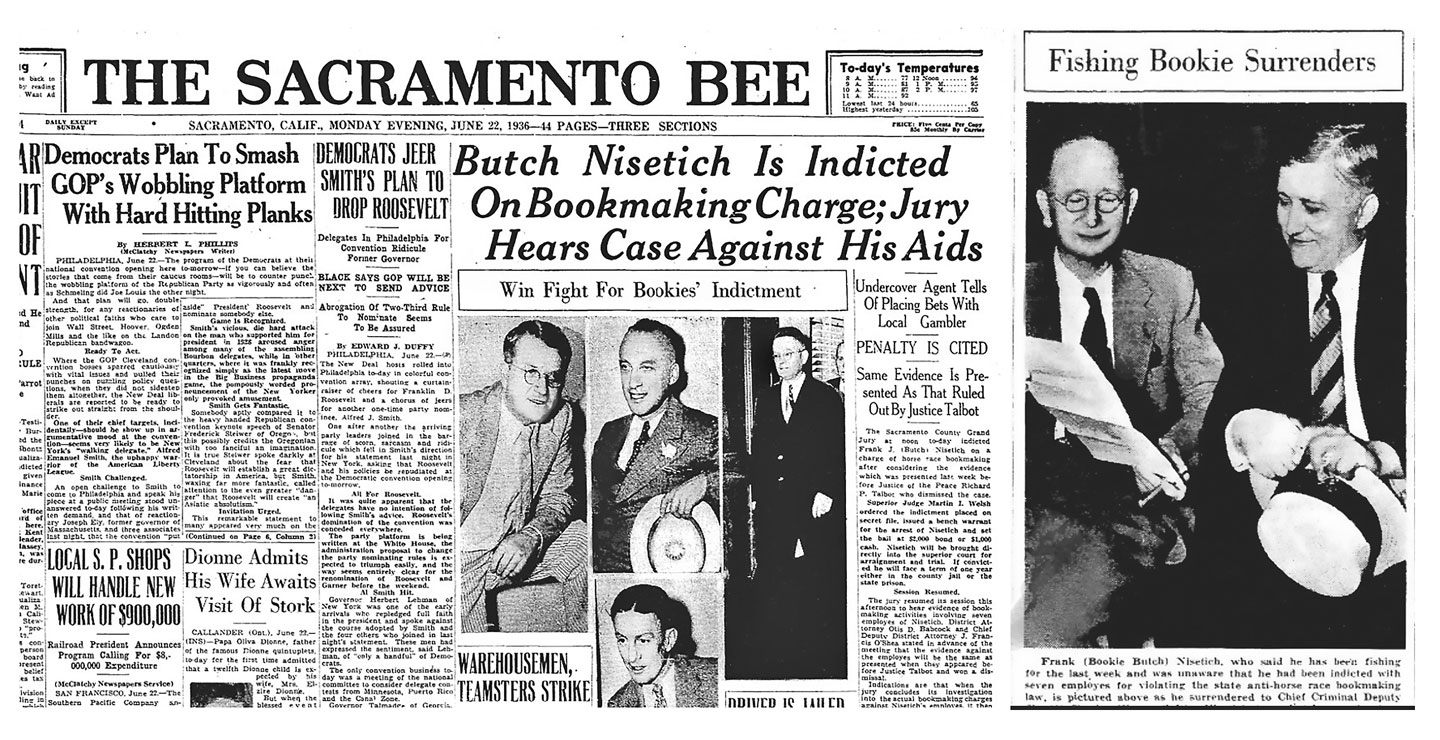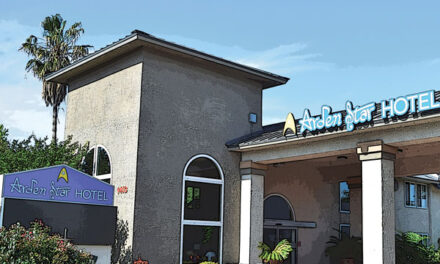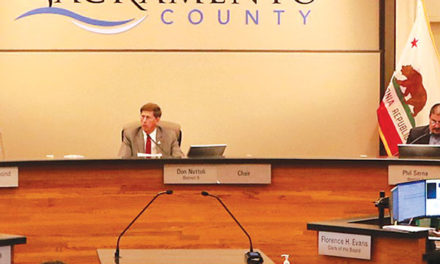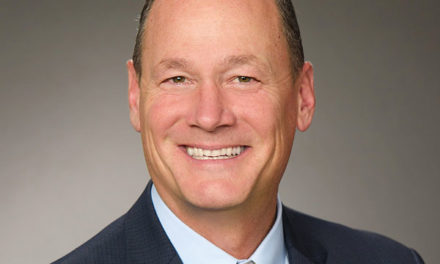Trouble began when Frank Miller, 66, dropped dead from a heart attack while listening to a horse race.
Miller didn’t die at home. He collapsed on the second floor of a bar and cafe called the Equipoise Club at 415 K St., in a room filled with chalkboards, teletype machines, telephones, betting slips, loud speakers and dozens of people. A bookie joint.
Eleven days later, 15 Sacramento police officers rushed into Equipoise, climbed the stairs, blew their whistles and interrupted about 150 racing fans. Eight people were arrested, including the club’s owner, Frank Nisetich, known to family, friends and prosecutors as “Bookie Butch.”
“We’ve got the dope this time,” Police Chief William Hallanan said. “We’ve got them dead to rights with plenty of evidence.”
The raid May 27, 1936, was front page news, complete with photos of skinny men in straw hats blinking at the cameras with dazed expressions. There was one exception. Pictures of Nisetich show a man neither skinny nor stunned. Bookie Butch looks amused.
The Equipoise story fascinates me for a couple of reasons. First, I love tales of Sacramento’s sporting past.

The city once overflowed with sporty types. There were baseball, boxing and wrestling fans. And brigades of horse racing fans. Sports were an essential distraction during the Great Depression and war years. Access was cheap and easy.
My other fascination involves the city’s formal relationship with sports. Access is no longer cheap and easy, but City Hall still loves sports.
Sacramento is waiting to spend millions of dollars to build a soccer stadium. As for the Kings, 26 years remain in the city’s ownership deal at Golden 1 Center. The basketball team has never been on the losing end of a critical City Council vote.
This wouldn’t surprise Bookie Butch. Ninety years ago, Nisetich ran a business illegal under California law. In Sacramento, he operated freely. He competed with at least five other bookies Downtown. None were discrete.
Laz Bloomberg operated at 1021 Second St., Ed Kripp at 603 J St. Joe Gideon ran a book on California Street (today Merchant) between Seventh and Eighth. Pat Hurd and Ed Coleman conducted business a block apart at 625 and 798 K St.
Local bookies took bets from major tracks across the country. But they specialized in two new California plants, Bay Meadows and Santa Anita. Both opened months after horse racing was legalized in 1933.
State law allowed wagers at racetracks, not off site. That hurt Sacramento fans. Bay Meadows was in San Mateo. Santa Anita is near Pasadena. City authorities figured local bookies supplied geographic opportunity. But there were critics.
City Councilman Ray Coughlin was outraged when Chief Hallanan allowed Bookie Butch and colleagues to handle bets.
County District Attorney Otis Babcock sided with Coughlin. The law was the law, they said. City Manager James Dean told them to relax.
“I’m not going to let it get here like it is in Los Angeles, where every beer parlor makes horse race books,” Dean said. As for arrests, “It’s impossible to convict a bookmaker.”
Frank Miller’s heart attack heightened the debate. Suddenly betting shops were killing people.
Chief Hallanan finally raided the Equipoise Club. “There were getting to be too many bookies here,” he said.
Bookie Butch was on trial twice in the Equipoise raid. Both ended with hung juries. He reopened and was arrested again in 1937. This time, his defense attorney Clifford Russell called one witness, Equipoise bartender Ray Keating.
The bartender was asked who he worked for and who signed his paychecks. He answered twice, “I don’t know.” The jury deliberated 15 minutes. Not guilty.
Convicting a bookmaker was impossible. But Bookie Butch needed a new environment. He moved to L.A., opened shop and was bankrupted by a race-fixing syndicate that included jockeys.
He came home, briefly invested in Alhambra Bowl—Butch was a remarkable bowler, especially when people bet against him—and retired to Santa Cruz County. He died at Aptos in 1975, age 89, amused to the end.
R.E. Graswich can be reached at regraswich@icloud.com. Follow us on Facebook, Twitter and Instagram:
@insidesacramento.















